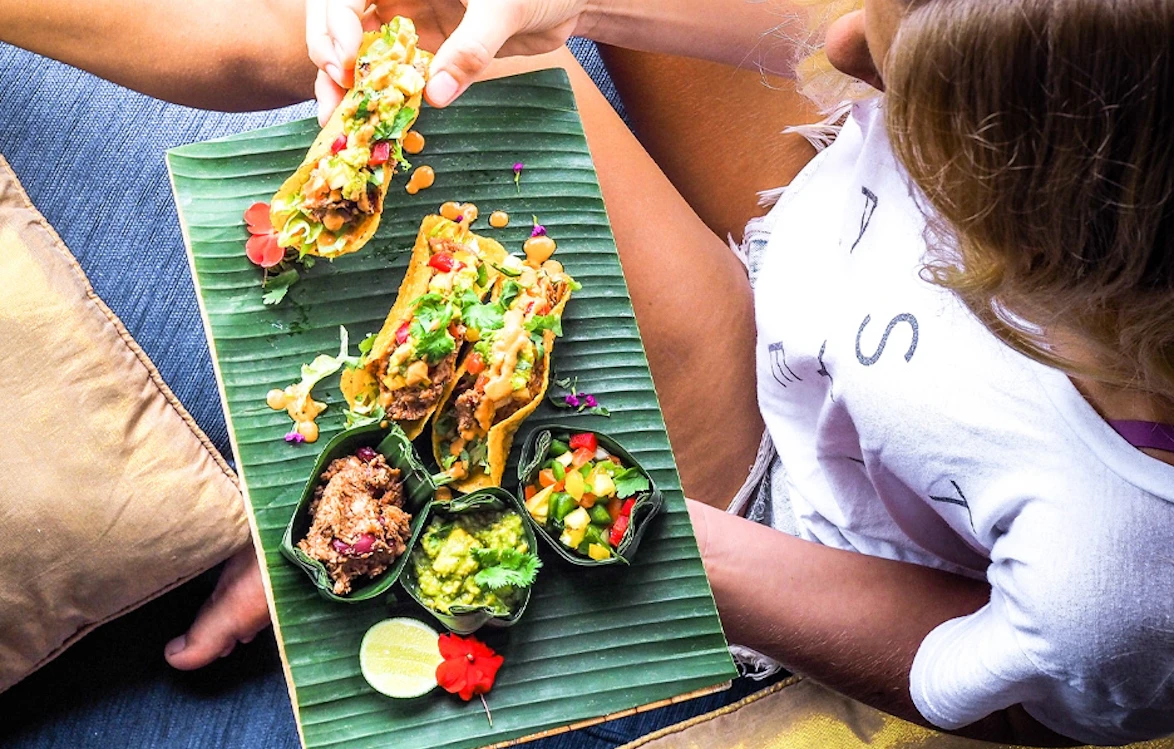Time to read: 4 min
Top 5 Plant-Based Meat Alternatives
Eating plant-based is not only good for your health but also better for the planet, and more and more people are deciding to eat less meat. At Orangefit, we're thrilled to see that!
If you're also looking to reduce or eliminate animal products from your diet, it's essential to replace them with vegetarian or vegan alternatives. This way, you ensure you still get the right nutrients (proteins, calcium, iron, zinc, and B-vitamins) when transitioning to a more plant-based diet.
There are now numerous ready-made meat substitutes, ground "meat," burgers, schnitzels, etc. available, but they're not always the healthiest choice. In this article, we'll explain why and provide our top 5 plant-based meat alternatives that are healthier than these processed products.
Ready-made Meat Alternatives: Not the Best Option
1. Tofu and Tempeh (Soy)
Soy products like tofu and tempeh have been staples in Asian kitchens for years.
Tofu is coagulated soy milk that is then pressed together. It doesn't have much flavor on its own, but it excels at absorbing other tastes and ingredients in a dish.
You can use tofu in stir-fries or crumble it as a substitute for eggs or cheese, in scrambled tofu, or in a veg(an) lasagna.
It's rich in proteins, and most tofu is also enriched with essential nutrients like calcium, vitamin B12, and iron.
On the other hand, tempeh is made from whole, fermented soybeans and has a much stronger, distinctive taste and more texture than tofu.
Like tofu, tempeh is high in protein and works well in Asian stir-fries, paired with tahini or peanut dressing, such as in a Thai salad.
2. Seitan
Seitan is made from wheat protein (gluten) and is generally less known as a meat substitute.
However, it's an excellent replacement (except for those on a gluten-free diet) due to its high protein content and plant-based iron.
It can be used as a substitute for meat or chicken in almost any recipe.
You might not find seitan in regular supermarkets, but it's widely available in most organic stores.
3. Chickpeas
4. Beans and Lentils
Beans and legumes serve as hearty and filling meat alternatives.
There are many types of beans: kidney beans, white beans, black beans, lentils, lupine, and more.
Each bean has a slightly different taste, making them suitable for various cuisines.
Black beans, kidney beans, and pinto beans are great in Mexican dishes, while chickpeas and lentils work well in soups and Mediterranean-flavored curries.
All beans are an excellent source of plant-based protein, B-vitamins, fiber, and iron.
They contain fewer essential amino acids than meat, so it's good to also regularly eat whole grains (rice, barley, wheat products) to ensure you get all the amino acids.
5. Quinoa
Quinoa may initially seem like a grain, but it actually falls under seeds and contains all the essential amino acids your body needs.
It's a perfect protein source for vegetarians and vegans.
Quinoa has more nutrients than most grains and has a relatively high protein content.
Quinoa is entirely gluten-free and rich in copper, magnesium, B-vitamins, vitamin E, and other antioxidants.
You can easily use quinoa as a grain for dinner or enjoy it for breakfast with plant-based milk, yogurt, fruit, and nuts.
Note: Vitamin B12
Vitamin B12 is mainly found in animal products and is essential for good health.
When you eat less meat or follow a completely plant-based diet, it's crucial to ensure you get enough vitamin B12.
Most meat substitutes and plant-based alternatives for milk, yogurt, and quark are typically enriched with B12.
